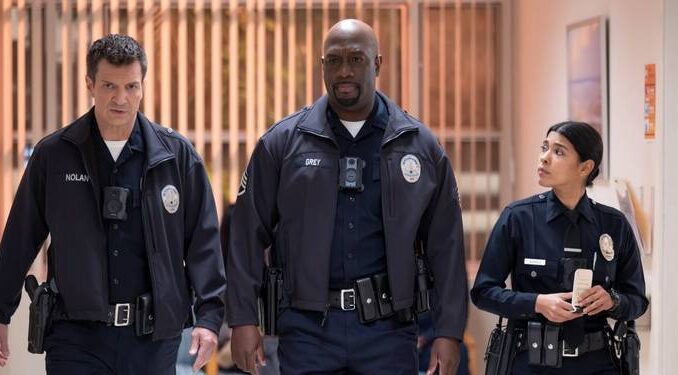
The Uniformed Humanity: Why The Rookie Should Focus Again on Realistic Police Work
From its initial siren call, ABC's "The Rookie" promised a fresh perspective on the well-trodden procedural path. John Nolan, a man restarting his life in his forties as the oldest rookie in the LAPD, offered a compelling hook: the grit of experience meeting the idealism of a new career. Early seasons excelled at this premise, grounding the drama in the everyday realities, the learning curve, and the often-unseen human toll of police work. However, as the show has matured, it has increasingly veered into the fantastical, sacrificing the very verisimilitude that once made it so engaging. It's time "The Rookie" remembered its roots and focused again on the nuanced, challenging, and inherently dramatic landscape of realistic police work.
The show's inaugural seasons understood the power of the mundane. Nolan’s journey wasn't about catching super-villains every week, but about mastering the basics: paperwork, community relations, de-escalation, and the crushing weight of a mistake. We watched him navigate domestic disputes that spiraled into tragedy, petty thefts that revealed deeper societal issues, and the complex ethical dilemmas inherent in wielding authority. Lucy Chen’s struggle with being underestimated, Jackson West’s battle against his father's legacy and his own moral compass, and Angela Lopez’s relentless pursuit of justice through meticulous, often thankless, detective work – these were the stories that resonated. They weren't always glamorous, but they were real, illustrating the slow burn of character development forged in the crucible of routine patrol and the genuine human connection officers build, or fail to build, with their communities.
Fast forward to recent seasons, and "The Rookie" has often traded its grounded approach for a more bombastic, "mission impossible" style of storytelling. Every season seems to culminate in a city-wide crisis, a shadowy criminal enterprise, or a personal vendetta that elevates the main characters from beat cops to elite tactical units, often operating outside established protocols. While an occasional high-stakes episode can be thrilling, the constant escalation has diluted the impact. When Nolan, Chen, Lopez, and even Harper are routinely facing down serial killers, international arms dealers, or orchestrating daring heists, the "rookie" moniker feels increasingly ironic, and the human element, once so central, gets lost in a cacophony of explosions and improbable escapes. The stakes become so ludicrously high that they cease to feel real, and the viewer's suspension of disbelief is stretched to its breaking point.
The untapped potential in a return to realistic police work is immense. True police drama doesn't need a super-villain to explore the depths of the human condition. It finds it in the homeless man struggling with mental illness, the teenager caught in a cycle of gang violence, the domestic dispute caller who fears for their life, or the grieving family seeking answers for a seemingly ordinary crime. These are the narratives that challenge an officer's empathy, resilience, and problem-solving skills in ways that a car chase simply cannot. Focusing on these stories would allow the show to delve into crucial contemporary issues like police reform, mental health in law enforcement, community policing initiatives, and the ethical gray areas that officers navigate daily. It would re-ground the emotional core of the series, giving weight to decisions and consequences that feel earned, not manufactured for spectacle.
Moreover, a shift back to realism would allow for more authentic character development. When every character is a de facto action hero, their individual struggles and growth can be overshadowed. Imagine Nolan confronting the systemic issues behind a wave of shoplifting, rather than uncovering a cartel. Picture Lucy Chen leading a community outreach program that genuinely changes lives, rather than infiltrating a high-level crime syndicate. Envision Angela Lopez balancing the demands of a complex but realistic homicide case with the challenges of motherhood, her brilliant detective work shining through the meticulous, often frustrating, process of evidence gathering, rather than a dramatic hostage negotiation. These scenarios offer richer veins of drama and allow the actors to explore a wider range of emotions and complexities.
"The Rookie" started as a show about a man finding his place in a demanding, dangerous, and often thankless profession. It was about the learning, the struggle, and the profound impact of connecting with a community, one call at a time. While the show's evolution into a more action-oriented procedural has certainly garnered viewership, it has arguably strayed from the very elements that made it unique and resonant in the first place. By refocusing on the nuanced, messy, and profoundly human landscape of realistic police work, "The Rookie" could reclaim its original promise, offering not just thrilling escapism, but a compelling, illustrative exploration of what it truly means to wear the uniform. It would be a return to uniformed humanity, and a richer, more enduring legacy for the series.
